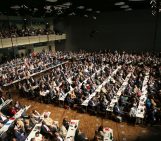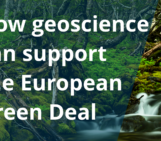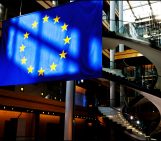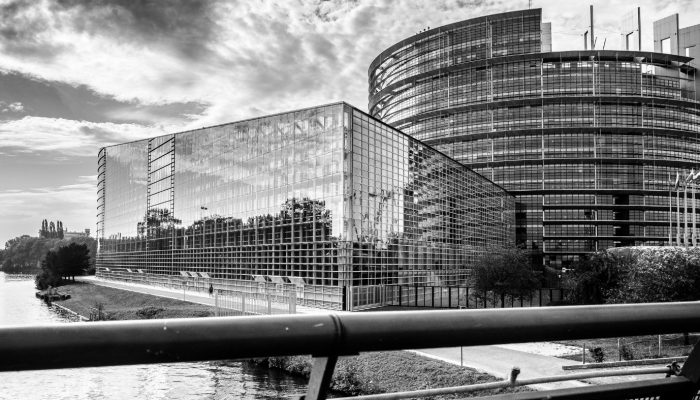
Only ~5% of Members of European Parliament, or MEPs, have a background in the physical sciences1, yet many political challenges require an understanding of the science surrounding these issues. Issues such as locating and extracting mineral resources, understanding climate change impacts, and developing new low-carbon technology. The European Commission (EC) and the European Parliament (EP) have structures in place to ensure drafted policy can be supported using scientific evidence. This GeoPolicy post takes a closer look at how the EP gathers and requests scientific evidence.
The EC and the EP have different mechanisms to ensure policy workers and MEPs are briefed on scientific material. The EC conducts in-house scientific research within the Joint Research Centre (JRC) and has recently constructed the Scientific Advice Mechanism (SAM) to ensure that the latest academic research is heard. This post focuses on how science supports the EP as last month’s GeoPolicy post discussed SAM in more detail.
There are 751 MEPs (including the UK) within the EP. All MEPs are required to sit on at least one of the 20 committees that focus on a particular area of governance. Each committee is responsible for assessing legislation proposals and negotiating edits to legislation with the Council of the EU. Additionally, they can organise meetings with experts and commission internal reports that focus on their relevant policy areas. A full list of the EP committees is shown below.
| EP Committees | ||
| AFET Foreign Affairs | EMPL Employment and Social Affairs | CULT Culture and Education |
| DROI Human Rights | ENVI Environment, Public Health and Food Safety | JURI Legal Affairs |
| SEDE Security and Defence | ITRE Industry, Research and Energy | LIBE Civil Liberties, Justice and Home Affairs |
| DEVE Development | IMCO Internal Market and Consumer Protection | AFCO Constitutional Affairs |
| INTA International Trade | TRAN Transport and Tourism | FEMM Women’s Rights and Gender Equality |
| BUDG Budgets | REGI Regional Development | PETI Petitions |
| CONT Budgetary Control | AGRI Agriculture and Rural Development | |
| ECON Economic and Monetary Affairs | PECH Fisheries | |
| Special committees | ||
| TAX2 Tax Rulings and Other Measures Similar in Nature or Effect (TAXE 2) | ||
| Committees of inquiry | ||
| EMIS Emission Measurements in the Automotive Sector
PANA Money laundering, tax avoidance and tax evasion |
||
The European Parliament Research Service (EPRS)
The EPRS is the in-house research centre for the European Parliament (not to be confused with the JRC who are the in-house research service for the European Commission). If science communication within the EP were a concert taking place in a park, the EPRS is the gazebo in which the band is playing. They operate as the main provider of science to the EP; usually carrying out secondary research or commissioning primary research in response to requests made by MEPs, committees or other EP bodies. They also carry out joint projects with the JRC for example the Science Meets Parliaments scheme (see below).
Many of their subsequent reports and resources are available online for the general public to read. Additionally, they have an active blog in which they post a variety of different types of articles3. These include updates on ongoing legislation being drafted by the EU, information briefings about a science policy topic, more in-depth analyses, infographics, and factsheets.
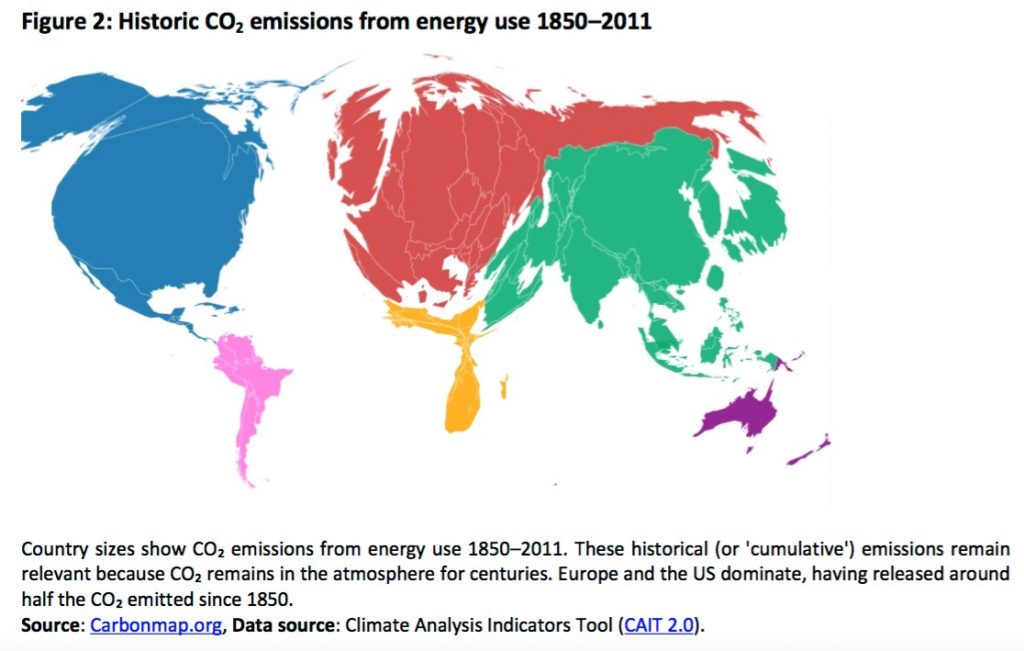
An infographic showing the continental contributions of historical CO2 emissions available on the EPRS Graphics Warehouse webpages.
Science and Technology Options Assessment (STOA)
MEP committee representatives can sit on cross-committee panels, which look at interdisciplinary topics. The Science and Technology Options Assessment, or STOA, is a cross-committee panel that focuses on providing Parliament’s Committees and other parliamentary bodies with independent and impartial scientific advice for science-related issues. The panel was established in 1987 and is made up of 23 MEPs that span eight permanent Committees of the Parliament: AGRI, CULT, EMPL, ENVI, IMCO, ITRE, JURI and TRAN. STOA also employs secretariat staff to help with projects and events2.
STOA (who meet monthly) have budget to fund research projects totalling 650,000 euros per year. Together with the EPRS they fund more substantial projects to provide scientific evidence for topics of policy-relevance. A study can have a maximum amount of 100,000 euros funding.
STOA work very closely with the EPRS. Together, the types of projects conducted are:
- Impact Assessments. These usually have a timeframe of <1 year and a resulting report is written for the requesting committee.
- Technology Assessments have a shorter time frame. The usual result is a short report summarising the current state of affairs for a specific topic.
- Scientific Foresight Unit carries out projects that look at 30-50 years into the future. Activities include horizon scanning, scenario building, and legislative back-casting (to accomplish an end goal, i.e. 80% reduction of greenhouse gas emissions by 2050, what legislature is needed in the near future to achieve this).
- Short written documents include “awareness documents” and “What If” documents, which are all available on the EPRS blog.
- The Scientists-MEPs pairing scheme entitled Science Meets Parliaments, which is co-organised by the Joint Research Centre. This year there was over 30 pairs and there are already plans to hold the scheme again in late 2016. A summary of the experience can been found here.
- Discussion workshops in which external experts can be called into present scientific research on a particular topic. Previous topics have been on volcanic eruptions and mitigation of earthquake effects.
Current projects being conducted focus on ‘future agriculture’ (precision farming), ‘assistive tech for the disabled’, and ‘3D printing and additive manufacturing’. Possible future topics will cover: energy resistance, employments, new technologies, regional policy, and language development within the information era.
—
Sources
1 – http://www.eubusiness.com/Members/michaelterberg/MEPs
2 – http://www.europarl.europa.eu/stoa/cms/home/panel
3 – https://epthinktank.eu/about/

